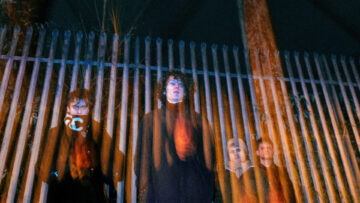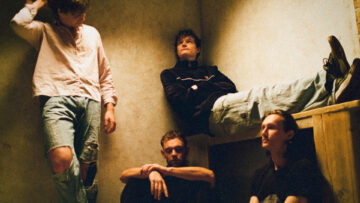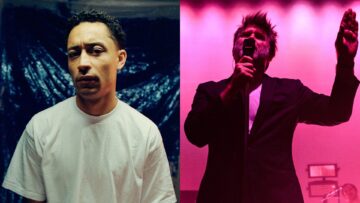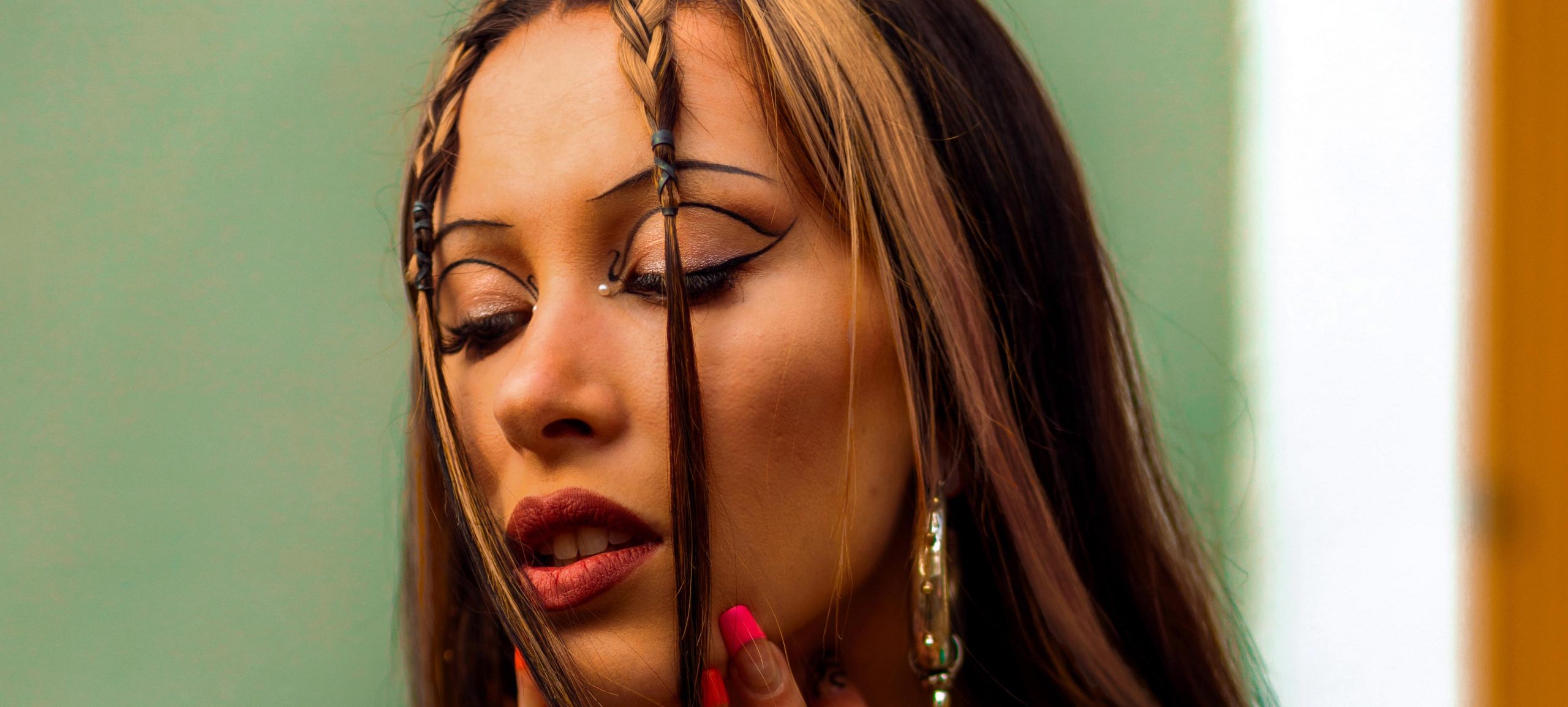
Fable was going to be the UK’s next breakout star, until her ex-girlfriend committed suicide and she quit making music. Six years later, the art-pop enigma has returned with her debut album Shame. She tells whynow about her story so far.
At the start of 2016, Holly “Fable” Cosgrove was, by her own admission, a wanker. She was 20 and had only been making music for two years, yet already the world was at her feet. Her sole release, the Parasite EP, was a collaboration with European post-rock royalty Archive. Major outlets like The Guardian and Q were all touting her as British pop’s next big thing. And she had a tour with The Cult ahead of her in February. Things were going great – and going to her head.
“I put myself on a pedestal,” the singer/songwriter remembers on a phone call, six years later. “If I’d had any [further] success at that point, it would have been without a strong foundation. Mentally, it could have gone really badly. I wasn’t quite old enough or mature enough.”
With her drinking and “taking a lot of bad things”, it doesn’t sound like the Fable story would have ended happily had it maintained its course. Then, midway through January, heartbreak put an end to everything. Fable’s close friend and former partner, Coral, took her own life.

Fable met Coral shortly after moving to Brighton at 18 years old. The musician was previously a country bumpkin, born and raised in the Devon seaside town of Paignton. Her mum was a local carer and her dad was a forklift driver who’d upped sticks from Glasgow, although he did dabble in music in his downtime.
“My dad was a singer who did loads of shows and toured in bands a lot,” Fable recalls. “I think I got that from him through osmosis. I’d go to his band rehearsals with my little earmuffs on when I was three. Now there’s some vicarious living – my dad living through me, in a sense – but I love that.”
Unsurprisingly, Fable started writing music young, in her midteens, but wouldn’t play or record her ideas until she made it to Brighton in 2013. Meanwhile, Coral was travelling to the city from Luton every weekend to perform her spoken-word poetry. The two creatives were bound to cross paths very quickly – and when they did, they fell in love.
“We had a really lovely relationship for a good year and a half,” says Fable. “She would channel all of her emotions into her poetry and her art, and that’s what first inspired me about her. We became really good friends because we were both so similar.”
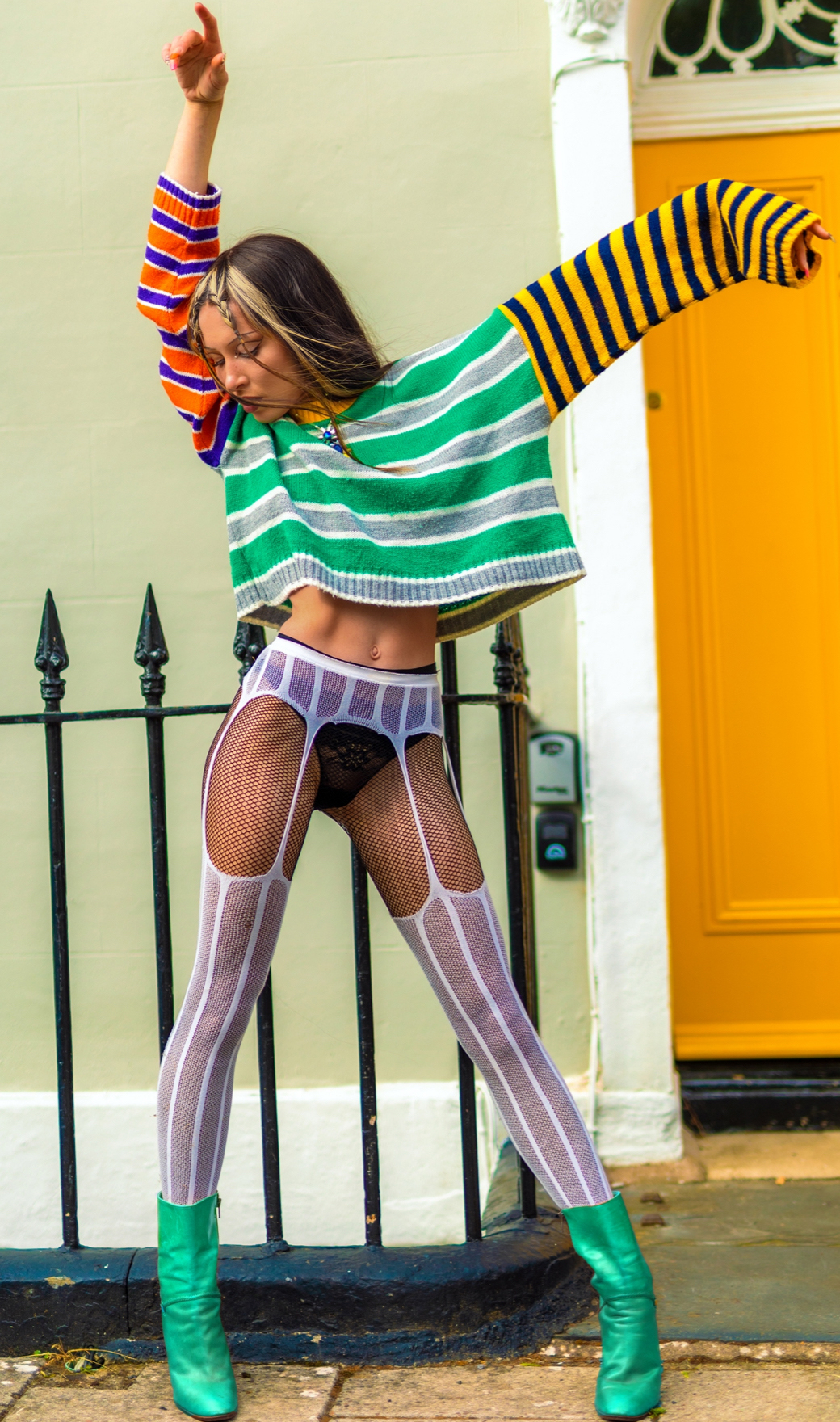
However, Coral had struggled with her mental health for her entire life. Mental illness ran in her family, which for her was compounded by the fact she lost her dad at a very young age. Her state only deteriorated further when, during what Fable calls an “episode” in London, she was aggressively tackled to the ground by the Metropolitan Police. “There were far too many [police officers] there,” the singer says. “She had a lot of really bad PTSD after that.”
Fable remembers Coral being “sectioned every other month” and “medicated up to the eyeballs”. However, even when the pair broke up, she supported her ex-girlfriend as much as she could until the very end. “She went off the radar for a long time. I couldn’t get a hold of her and I knew she was in a shit place. I really tried to get in contact with her, and it was difficult, but eventually she messaged me. We had one last meeting and then, very shortly after that, she calmly took herself off.”
“She spent a lot of time in secure facilities. All of those experiences culminated in her trauma taking her over and her having to take her life, which is horrendous. It’s a difficult one when we live in a country that has such failings in the mental health system. A lot of the time, it does more damage than good. Her death was definitely somewhat caused by the system.”
Coral’s passing, unsurprisingly, sent Fable into a panic, and the rising pop star quickly and drastically reevaluated her priorities. Although she played her shows with The Cult and a set at Glastonbury, she removed herself from the music industry immediately after. Unable to afford the rising rent in Brighton, she relocated to Bristol and got a job in a branch of Next, then later worked on a farm. Ultimately, it took three years for Fable’s creativity to reemerge.
“I went through an identity crisis, but it was really refreshing to be out in the world and gain some social skills,” she laughs. “As musicians, we spend a lot of time alone, thinking and writing. My days were very much spent in front of my keyboard and my laptop, whereas, in the day job, they were spent communicating with all different kinds of people. I love that.”
It wasn’t until October 2020 that Fable came back, releasing the single “Thirsty”. The erratic pop-rock track – which darts from bubbling beats to aggro electric guitar – was the first taste the world got of the singer’s upcoming debut album, Shame. It’s an aptly boundary-testing preview.
Shame is a 45-minute, 12-song romp through countless genres and subgenres. Its most dramatic turns are felt on ‘Unequal’ and ‘Swarm’: a one-two punch of blink-and-you’ll-miss-it EDM and metal-heavy breakdowns followed by a folk ballad with singing powerful enough to make Adele sound like a field mouse. There’s also ‘Onion Brain’ – a swinging piano jazz number fresh out of the 1920s – and the plodding yet vocally multifaceted ‘Womb’.
“I really love bands that can smash genres together,” Fable says. “We’re living in this ironic age where everything is post-post-punk, almost. In music journalism, there’s a lot of ‘This person is like this person, so you’ll like them’; I want this album to be a foundation that the next thing can be compared to.”
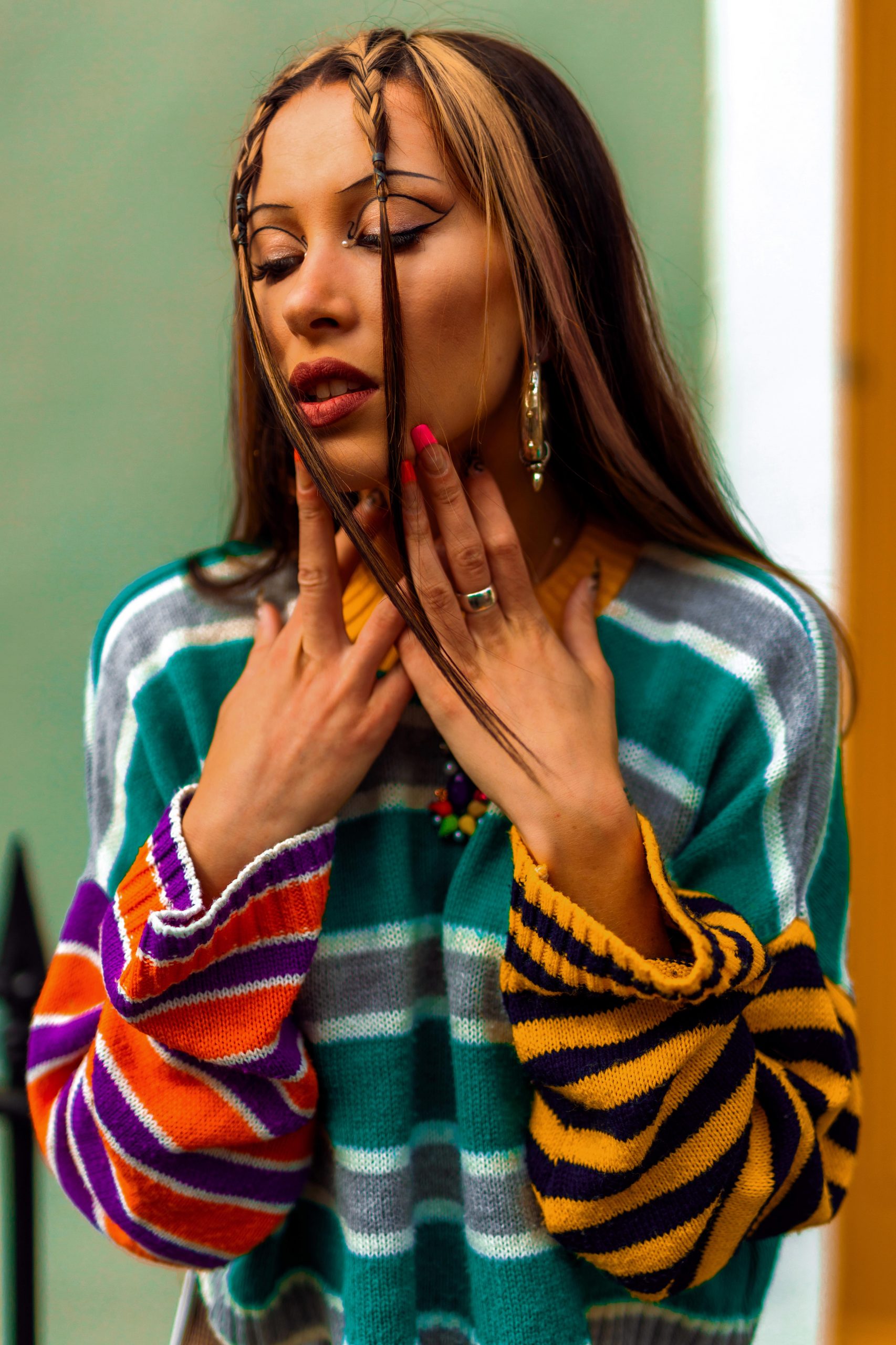
Lyrically, Fable claims that Shame isn’t personal as much as it is obsessed with the big picture. The Gen Z condition is an overarching theme throughout these songs, especially the irony of social media doing the opposite of its job and driving us further apart. Coming to terms with life’s biggest struggles – such as death, existential crises and your personality perennially changing and evolving – also defines the album.
“There’s a lot of Coral and the philosophical conversations we’d have on this record,” says Fable. “She saw the same sort of beauty and light through adversity. That’s where her poet nature came out a little bit.”
Fable has weathered heartache and had to rebuild her momentum from the ground up, yet she’s clearly entering her second go of it wiser than before – and not to mention armed with more eclectic and essential music. She considers Shame the ideal (re)opening statement: so boundless that, when it comes to album number two, she could go anywhere.
“It’s so multi-genre that I’ve left myself able to go in any direction from here,” she enthuses. “And it’s got the energy to give me the foundation for a really good tour. The energy I get from that tour will then inspire the next album. This album feels like an opening of possibilities of where I can take things in future.”
Shame is out on 29 July.

